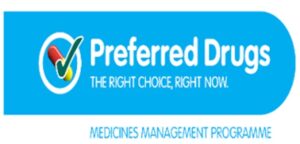
SPHeRE Scholar David Aluga
In May 2024, I began an eight-week national placement at the Medicines Management Programme (MMP), one of the first-year milestones of the Structured Population health, Policy and Health-services Research Education (SPHeRE) PhD Programme. The SPHeRE Programme is a national doctoral training Programme in Population Health, Policy and Health Services Research (PHPHSR) funded by the Health Research Board (HRB) in Ireland. I was assigned the exciting project of reviewing the minutes of meetings of the Drugs Group from 2018 to date for insights into their recommendation. The interactions between the Health Service Executive (HSE) and drug companies under the aegis of the Irish Pharmaceutical Healthcare Association (IPHA) are guided by the Framework Agreement on the Supply and Pricing of Medicines as required by the Health Act 2013. The current Agreement came into effect on 1st October 2021 and is expected to last until 30th September 2025.

Group Photo with Other SPHeRE Colleagues after Presenting My Thesis Proposal
Before the placement, I had commenced considering how I would develop my thesis proposal. I presented my initial ideas to the thesis panel on the thesis presentation day in June and the panel observed key issues that I needed to work on to further enhance the proposal. The work placement gave me ample time to explore Health Technology Management (HTM) in Ireland and see how my research project on evidence-based resource allocation would fit in. My placement Supervisor, Dr. Claire Gorry, who is also a pharmacist was immensely helpful in giving me an overview of the MMP and the work they do. She also arranged for me to meet key members of the MMP team and Dr. Caroline Walsh, at the National Centre for Pharmacoeconomics (NCPE) to get to understand their practices and procedures. I also had the opportunity to ask them questions and seek additional clarification about their processes. The major challenge they faced was the need to employ more people to manage the increasing number of items on the Reimbursement List with HTM.
Following the review of the Drugs Group’s minutes, I was able to draft a conference abstract which has been submitted for presentation at the International Society for Pharmacoeconomics and Outcomes Research (ISPOR) Europe Conference. I plan to attend the ISPOR Europe 2024 Conference in Barcelona, Spain this November, to present some of the important findings from this document analysis. Moreover, I will begin drafting a manuscript for publication of the detailed analysis in a reputable journal in mid-August.

The HSE Medicines Management Programme
In the Republic of Ireland, the HSE is responsible for implementing health policies developed by the Department of Health (DoH). This includes the provision of health and social services in the hospital and community settings. In 2013, the HSE established the MMP to promote safe, effective and cost-effective prescribing. The MMP collaborate with relevant agencies such as the National Medicines Information Centre (NMIC), the National Centre for Pharmacoeconomics (NCPE) and the HSE-Primary Care Reimbursement Service (HSE-PCRS) to manage medicines on the publicly funded Reimbursement List.
The Health (Pricing and Supply of Medical Goods) Act of 2013 established the Reimbursement List and empowered the HSE to add or remove items on the List considering factors such as safety, clinical effectiveness, cost-effectiveness, ensuring appropriate use of the item or appropriately applying available resources. Furthermore, the HSE set up a review committee, the Drugs Group, which was charged with considering all applications by drug companies and recommending the addition of medicines to the Reimbursement List to the HSE leadership. The Drugs Group meets roughly once a month to consider such applications with the HSE Corporate Pharmaceutical Unit (CPU) serving as its Secretariat.
In conclusion, this work placement allowed me to meet interesting stakeholders involved in HTM in Ireland and understand how their work is assisting the HSE to reduce unnecessary spending on low value health technologies. It has also allowed me to experience firsthand, the challenges and opportunities in HTM and how my research project can help to solve some of these problems. Finally, the knowledge I have acquired was instrumental in finalising my thesis proposal which I am expected to implement for the remaining three years of the SPHeRE PhD Programme. I am now better equipped to undertake this task.

